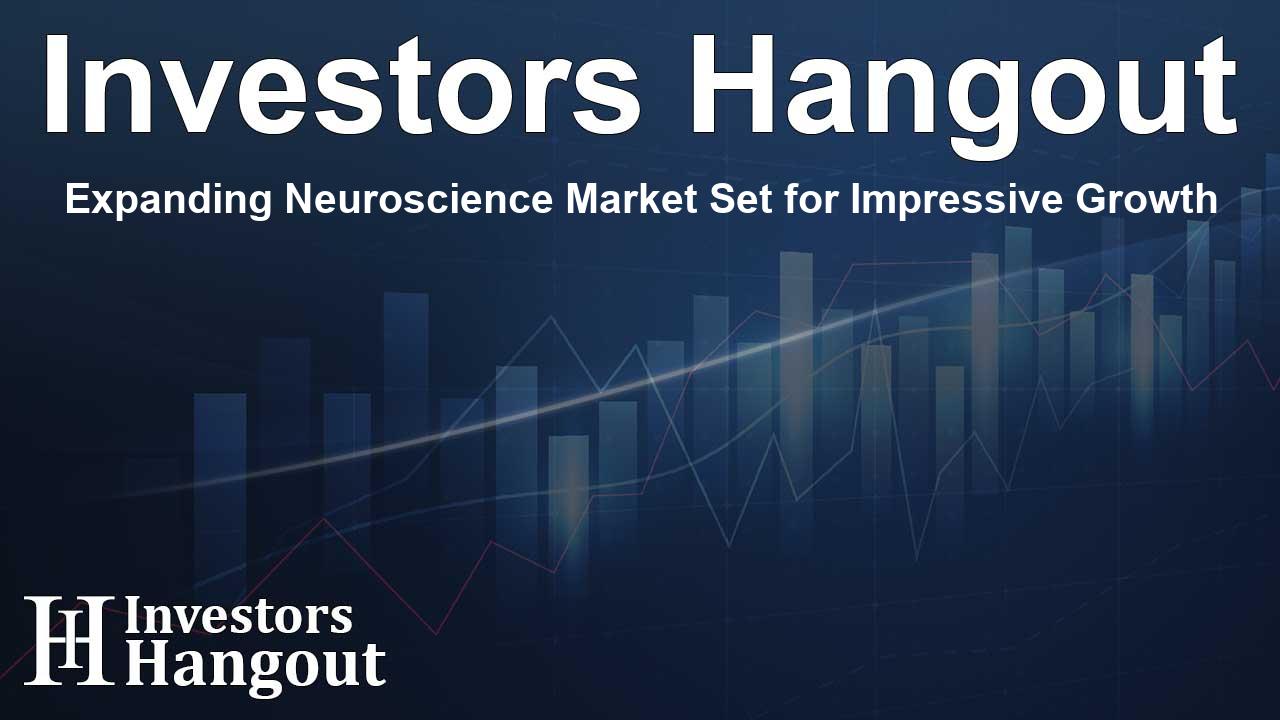Expanding Neuroscience Market Set for Impressive Growth

Expanding Neuroscience Market Dynamics
Recent innovations highlight the transformative nature of the neuroscience market, which is experiencing significant expansion. With advancements in technology, including the launch of portable MRI units and novel neurological frameworks, the market is moving towards a future filled with promise and opportunity.
Current Market Position
The global neuroscience market is currently valued at USD 43.5 billion and is projected to reach USD 71.0 billion by 2032, marking a compound annual growth rate (CAGR) of 5.6%. This growth reflects an increasing understanding of neurological disorders and the innovations being introduced to tackle these challenges.
Key Innovations in the Field
Among the notable developments is the recent introduction of a helium-free MRI unit by Philips, which is lightweight and enhances accessibility to advanced imaging technology. Additionally, NeuroNexus Technologies has unveiled its Summa Framework, designed to aid researchers in collecting and studying electrical signals from biological cells, pushing the boundaries of neurological research.
Cognitive Neuroscience and its Importance
The intersection of neuroscience and psychology is crucial, particularly in understanding cognitive processes. Investigations into cognitive function are increasingly necessary, especially for aging populations susceptible to disorders like Alzheimer’s and dementia.
Driving Forces Behind Market Growth
The rising prevalence of neurological disorders is a defining factor propelling market growth. With a growing elderly population, there's a corresponding increase in disorders such as Alzheimer's and Parkinson's. Reports suggest that about 6.7 million individuals in the U.S. aged 65 and above are currently affected by Alzheimer's, a number that could rise dramatically in the coming decades.
The financial implications of these conditions are staggering, with costs anticipated to escalate from $1.3 trillion in 2019 to $2.8 trillion by 2030, underscoring an urgent need for innovative healthcare solutions. The disparities in healthcare access further emphasize the importance of tailored advancements in medical technology.
Challenges and Opportunities
Despite immense opportunities, the neuroscience field faces significant challenges, particularly in understanding the complexities of brain function. The integration of various research techniques is necessary to unravel the neural underpinnings of cognition, emotion, and behavior, often complicating the process of translating research findings into clinical applications.
Technological Innovations
Technological advancements in neurofeedback systems and brain-computer interfaces (BCIs) promise to revolutionize treatment pathways for neurological conditions. Initiatives like the BRAIN initiative aim to cultivate new research methodologies focused on human brain functioning and enhancing the quality of life for individuals with mobility challenges.
Emerging Research and Development
Collaboration among governmental bodies, academic institutions, and private enterprises will escalate the advancement of neurotechnologies. Companies are investing heavily in research to develop innovative solutions that merge artificial intelligence with neurological diagnostics, presenting endless possibilities for enhancing cognitive functions.
Market Segmentation Insights
The neuroscience market is categorized into components such as instruments, software, and consumables. Significant players like GE Healthcare and Siemens Healthcare are at the forefront of developing sophisticated diagnostic devices, driving innovation in this rapidly evolving sector.
By technology, brain imaging remains the most significant segment, prominently due to enhanced demand for MRI and EEG technology within healthcare settings. As healthcare practices evolve, the need for advanced neuroimaging solutions is expected to increase, boosting market potential.
Looking Ahead: The Future of Neuroscience
As the neuroscience landscape continues to evolve, expect to see tailored approaches addressing neurological disorders through innovative therapies combining medication with novel technological solutions. This paradigm shift signifies a commitment to improving human capabilities and addressing the complex challenges posed by neurodegenerative diseases.
Frequently Asked Questions
What is the projected growth rate for the neuroscience market?
The neuroscience market is expected to grow at a CAGR of 5.6%, reaching USD 71.0 billion by 2032.
What factors are driving the growth of the neuroscience market?
The increase in the prevalence of neurological disorders and advancements in technology are key factors fueling market growth.
What technological innovations are impacting the neuroscience field?
Innovations such as portable MRI units and AI integration in diagnostics are significantly shaping the neuroscience landscape.
Why is cognitive neuroscience important?
Cognitive neuroscience is essential for understanding neural mechanisms behind mental functions, especially in aging populations susceptible to cognitive decline.
What are the biggest challenges facing the neuroscience market?
The complexity of brain function and the need for effective translation of research into clinical solutions present significant challenges in the field.
About Investors Hangout
Investors Hangout is a leading online stock forum for financial discussion and learning, offering a wide range of free tools and resources. It draws in traders of all levels, who exchange market knowledge, investigate trading tactics, and keep an eye on industry developments in real time. Featuring financial articles, stock message boards, quotes, charts, company profiles, and live news updates. Through cooperative learning and a wealth of informational resources, it helps users from novices creating their first portfolios to experts honing their techniques. Join Investors Hangout today: https://investorshangout.com/
Disclaimer: The content of this article is solely for general informational purposes only; it does not represent legal, financial, or investment advice. Investors Hangout does not offer financial advice; the author is not a licensed financial advisor. Consult a qualified advisor before making any financial or investment decisions based on this article. The author's interpretation of publicly available data shapes the opinions presented here; as a result, they should not be taken as advice to purchase, sell, or hold any securities mentioned or any other investments. The author does not guarantee the accuracy, completeness, or timeliness of any material, providing it "as is." Information and market conditions may change; past performance is not indicative of future outcomes. If any of the material offered here is inaccurate, please contact us for corrections.